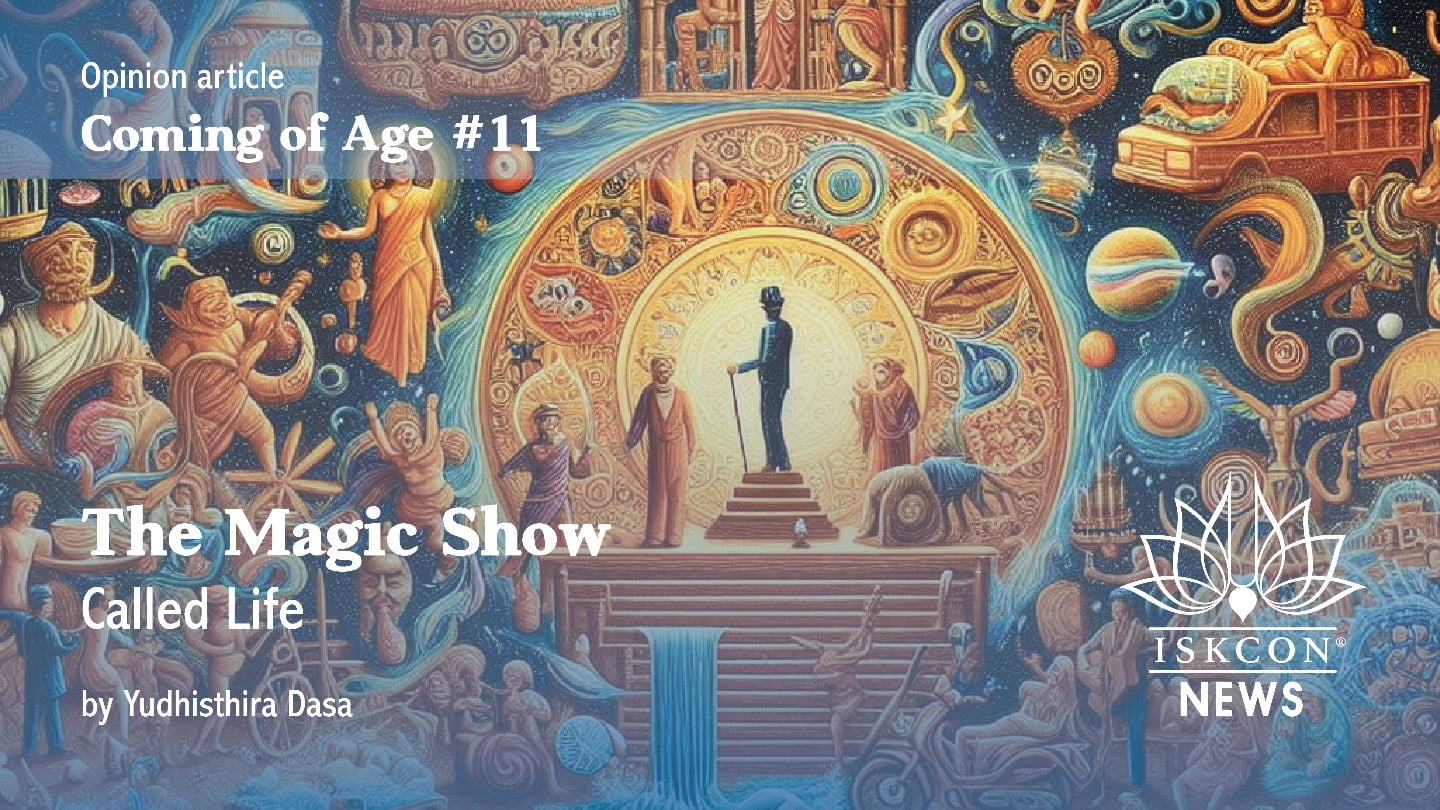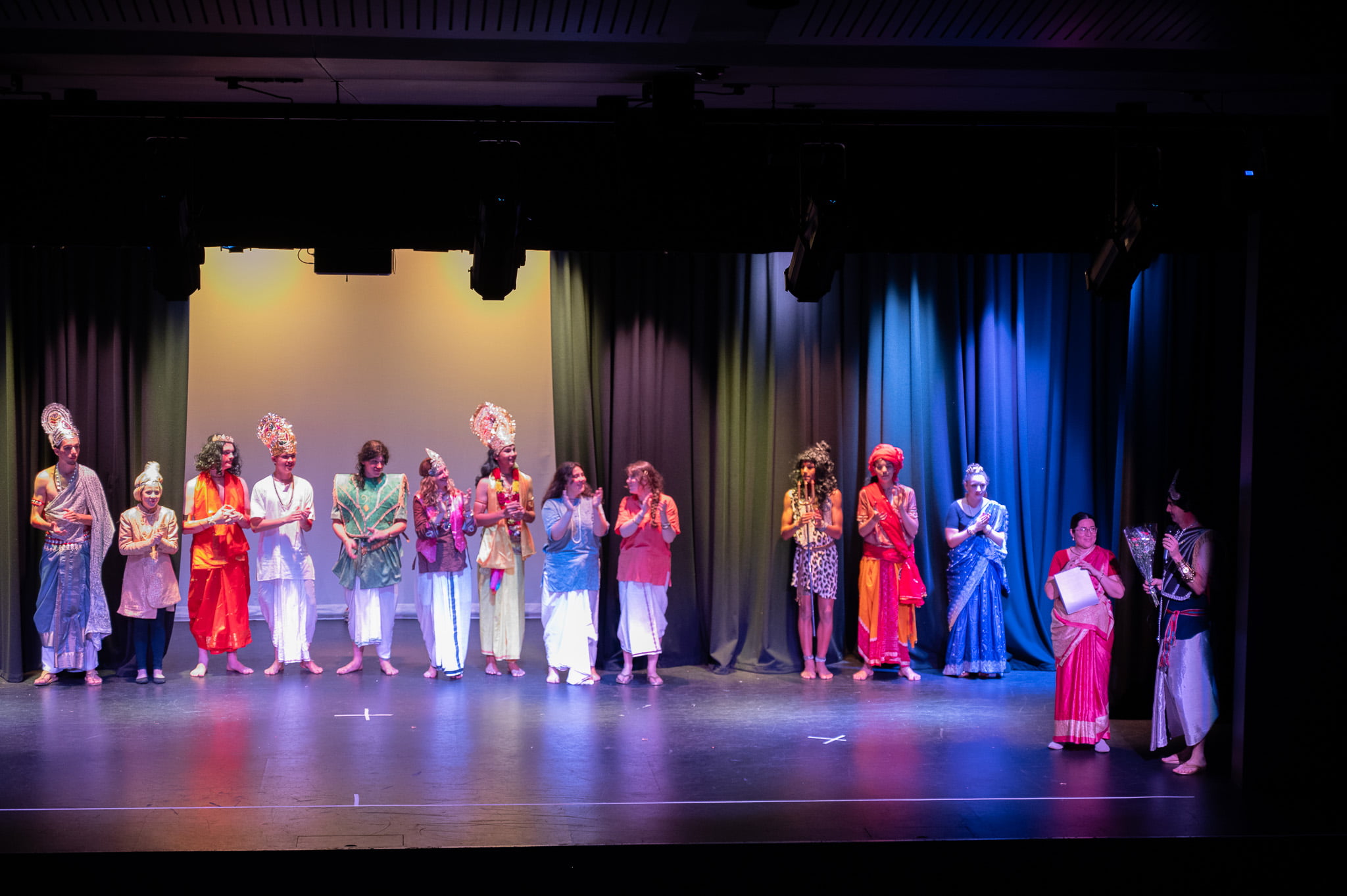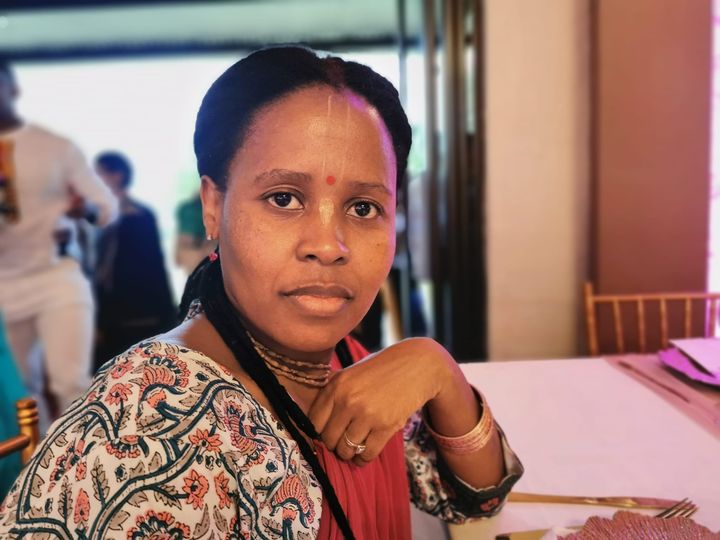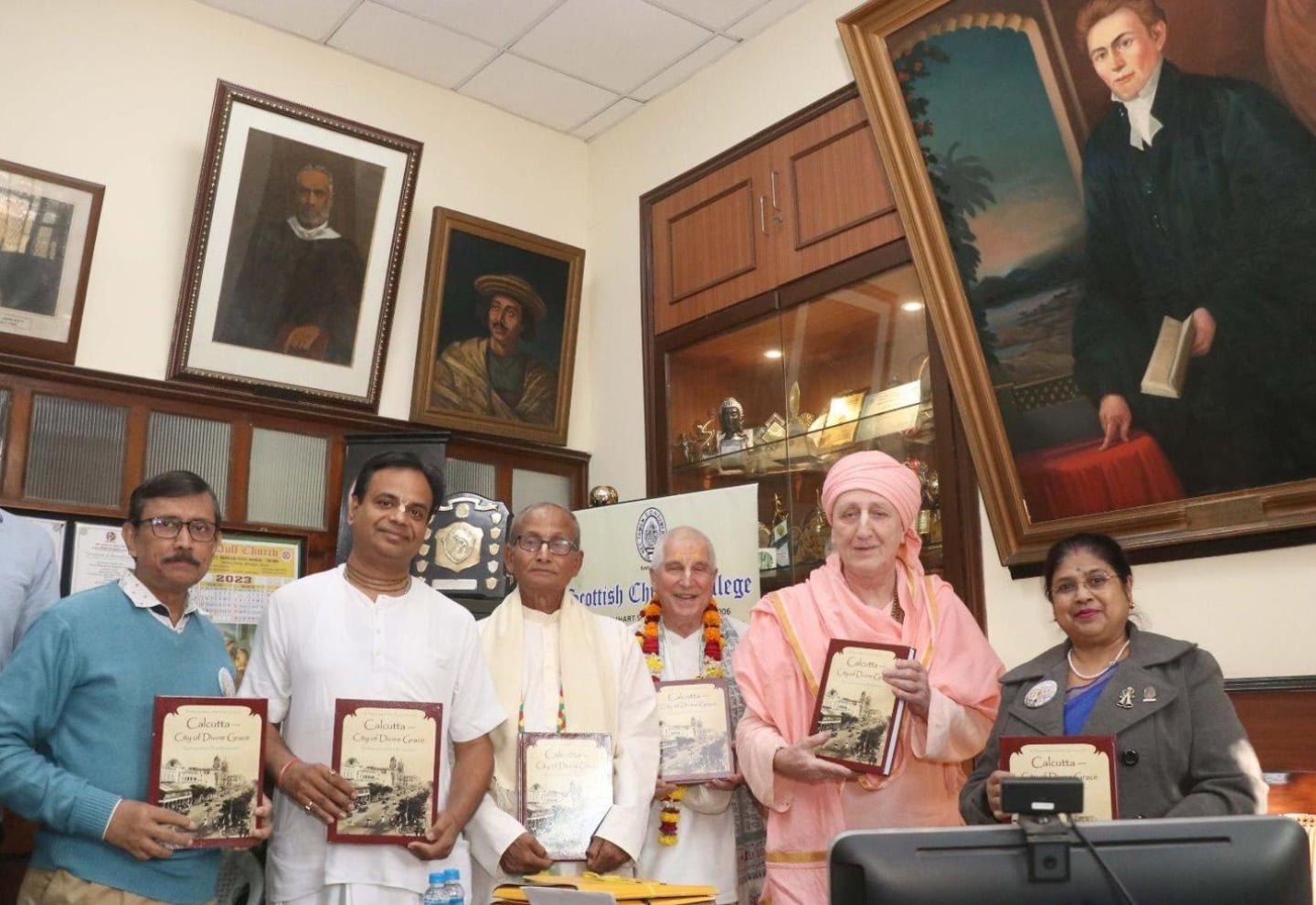German Interfaith Dialog Asks ‘Do Religions Cause Peace or War?’
By Madhava Smullen | Mar 16, 2017

An interreligious dialog, held in ISKCON Germany/Austria’s headquarters near Frankfurt from April 21st to 23rd, will discuss the very topical question, ‘Religion: Peacemaker or Cause of War?”
This will be the third annual such event organized by ISKCON and Religions for Peace, the largest international coalition of world religion representatives dedicated to promoting peace.
About 100 people will attend this April’s event. Devotee speakers will include Dina Sharana Dasi, who is the GBC for Germany, Austria, Switzerland, and Lichenstein, and a representative for ISKCON and Vaishnava-Hindus in interreligious dialog.
Dina Sharana is pulling double-duty and also representing Religions for Peace at the event, as she has worked with the organization for over twenty years and is one of its leaders in the region.
Also speaking will be Dina Sharana’s husband Chakravarty Das, a disciple of Srila Prabhupada who represents ISKCON in interfaith dialog.
Meanwhile Religions for Peace representative Dr. Franz Brendle will also address the assembly, as well as Daniel Bauer, Mayor of the local Hoheinstein municipality.
Also attending will be representatives of different faiths from all over Germany, such as Islam, Catholicism, Evanglism, Judaism, Bahá’í and Zoroastrianism.
Representatives of different departments of the environment, local politicans and other key personalities such as a local refugee organizer will participate too.
Finally, all of ISKCON Germany’s temple presidents will attend along with political and religious leaders from their areas.
The event will be hosted and catered by the ISKCON Wiesbaden temple, where ISKCON Germany/Austria’s headquarters is located.
Everyone will arrive on Friday before 6:00pm for a kirtan evening. “For many of our guests, it will be their first introduction to the chanting of the Hare Krishna mantra,” says Dina Sharana Dasi. “So we will have specially-assigned kirtaniyas who are sensitive to laypeople.”
Saturday will begin with everyone attending a morning program that will be shortened to 7:15am to 8:45am to accommodate guests, but will include mangala arati, Tulasi arati, Gurupuja, some japa and a talk.
“Part of the reason for this is that we want to show what we are doing, that we’re not just talking theory,” says Dina Sharana. “Also, Religions for Peace’s philosophy is for everybody to go to the different churches and religious houses and participate or at least observe each other’s worship.”
Following breakfast, the conference will run from 10:00am until 2:00pm, with many speakers giving their presentations on the topic “Religion: Peacemaker or Cause of War?” from different perspectives. There will also be an open discussion at the end.
After lunch, everyone will attend three special events.
The first will be the opening of ISKCON Wiesbaden’s new interfaith library, housing all of Srila Prabhupada’s books as well as extensive Christian, Muslim, Jewish and Buddhist literature.
The second will be the launch of ISKCON Wiesbaden’s new Vaishnava Museum, where a collection of paintings depicting Vaishnava culture that has been years in the making will be displayed.
And the third will be the World Ethos Exhibition. Presented by Religions for Peace, this will show a timeline of when and how the different world religions appeared, key events in their histories, and what their main objectives are, for quick and easy comprehension.
On Sunday, guests will again participate in the morning program and be served breakfast before returning home.
“These kinds of events are important for several reasons,” says Dina Sharana. “For ISKCON devotees, it’s important that we learn to interact with the outside world and other religions. When we do this, others also learn about our Vaishnava culture, our society and Srila Prabhupada, and accept us as a bona fide religion like Christianity, Judaism or Islam.
“These events are also important in making personal connections with the members of other faith traditions. By building these relationships, we can help each other, and eventually develop common projects that we want to offer to society.
“In this way,” she concludes, “We can show society that religions can be friends, that we can drop our prejudices and cooperate under our shared belief in God, while respecting our differences.”












